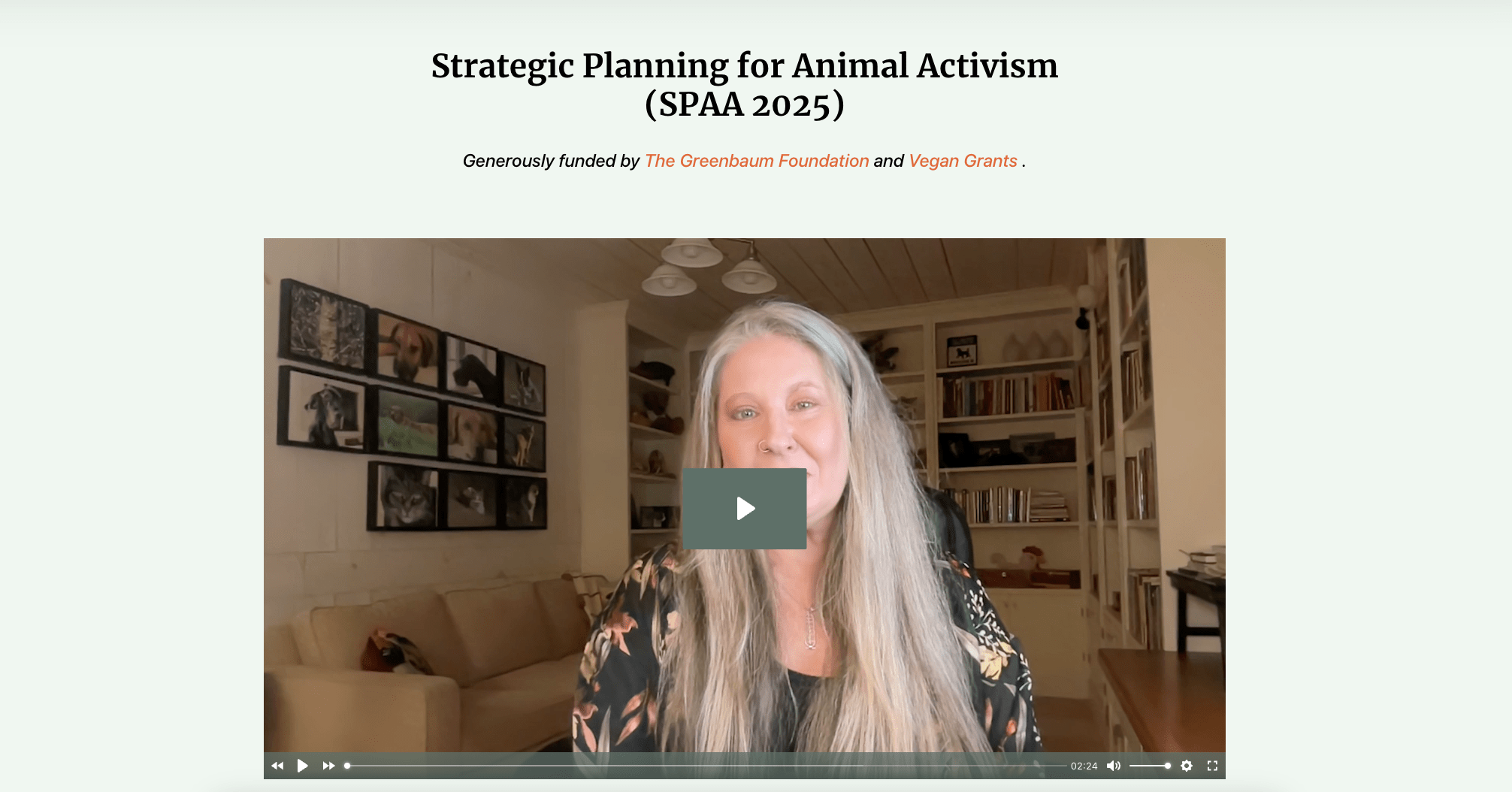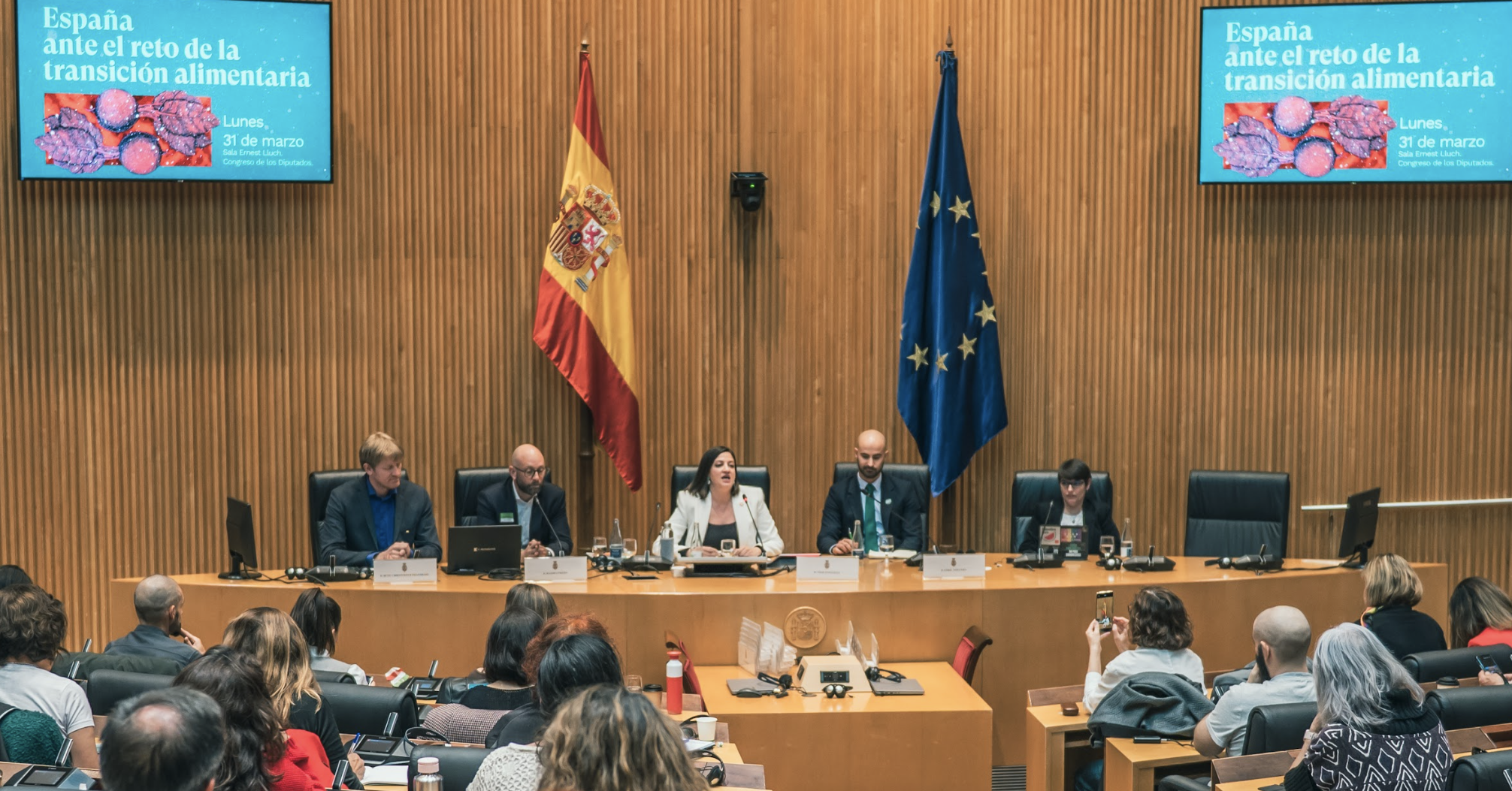An announcement from Dr. Krista Hiddema: Strategic Planning for Animal Activism (SPAA) course for 2025 is now open!This is your opportunity to be part of a transformational experience designed to amplify your impact within the realm of animal rights and vegan advocacy. Thanks to the generous support of The Greenbaum Foundation and Vegan Grants, this comprehensive program is offered at no cost to you.
You can find out more here - scroll down on the page to the "Apply Today" button.
Key Details:
Application Deadline: March 14th, 2025 (midnight EST)
Fully funded, with no financial barrier to access
Limited spaces available to ensure personalized attention and interactionDo not miss this chance to elevate your strategic planning skills and connect with influential funders in the field. Apply by March 14th to secure your place.Read about the experiences of others near the bottom of this page.
Here are just a few excerpts:
- "It has provided us with applicable tips for our growth and up-to-date AI tools as well as how to make them work in our favor." - Teodor Vasile, President, ACIA.ONG (Asociația de Conștientizare a Industriei Agricole)
- "Krista's SPAA course is a must for any organisation within our movement. By the end of the course, you'll have produced a roadmap to propel your organisation forward with clarity." - Sarah Warner, Founder, Growing Plant-Based
- "The resources and insights Krista provided will continue to guide me throughout my career. Her commitment to tailoring the content to real-world challenges made the learning incredibly relevant." - Zachary Champoux, Operations Director, We The Free
- "Dr. Hiddema’s thoughtful approach encouraged us to assess our strengths and challenges critically while ensuring our goals remained grounded in our core values. The program also inspired us to think creatively about building partnerships and leveraging resources to amplify our impact." - Crystal Heath, Executive Director, Our Honor
Please join Kyle Behrend, our AI Lead, and me as we strategize toward a Vegan World.



